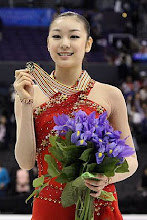I am Korean. I grew up in Seoul: the crowded capital city of South Korea with over 10 million population. I was one of the passionate Red Devil (The supporters of Korean Soccer Team) crying and laughing with those 10 million population during the World Cup in 2002. I am amongst the generation that was so fascinated by the tremendous victory in the World Cup that students would forget to eat lunch for playing soccer at every free minute given in school.
 Red Devils during World Cup, 2002
Red Devils during World Cup, 2002
I was one of 'em!
My family is just like other typical Korean families. My parents are both proud Korean who are living witnesses of the miracle of Han River and glory of 1988 Seoul Olympic; they grew up with the nation's industrial and economic growth. My grandparents suffered through the nation's hardship together when Japan usurped power from the last emperor of Korea, Gojong, then again when Korean war tore the nation apart.

Miracle of Han River
(refering to the rapid industrial growth in South Korea after the Korean War)
Just like many other Korean families, my family too is an evidence of the dynamic modern history of Korea. And just like many other Korean students in my age, I too take pride and interest on my own nation's history; I am proud of the resiliency of my people and the history of their survival. Therefore, I want to share a little part of it with you. A part that even I, despite being one of the best history students for all my school years (haha), am uncertain about. A part that Korean public education on history has never taught me. That is, a History of Riverly between Korea and Japan. Since when they fought? Why have they always had conflict? Why're they like East Asian Tom and Jerry?
Now you must think that this blog will be heavily biased or politically incorrect. True, huge part of this blog will be opinionated articles and anecdotes based on Korean and Japanese people's personal experiences. It may sometimes deal with politically controversial issues like the territorial dispute over Dokdo island, the compensation and apology for the sex slaves (위안부) whom Japanese soldiers drafted during the Second World War. However, the opinions presented in this blog will be supported and proved by the facts, and I promise you, they will be interesting and worth-reading. I am determined to dig into the core of this topic that nobody has ever explained so clearly to me!
Oh, and just for a quick reminder, the disagreements and counterarguments are always more than welcomed.
What's next?
(Coming Soon!)
- Discussion on LA Time's article on Yuna-Kim's victory on Olympic figure skating, 2010
- Dokdo vs. Takeshima? Territorial Dispute over a Dokdo Island


No comments:
Post a Comment